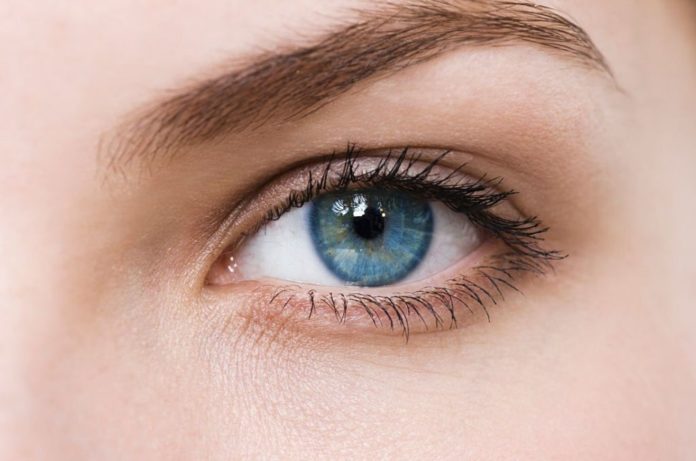Diet, circadian rhythms, eye health, and longevity are all linked together in Drosophila according to new research from the Buck Institute. Additionally and unexpectedly, they discovered that processes in the fly eye drive the aging process.
Additionally and unexpectedly, they discovered that processes in the fly eye drive the aging process.
The findings of the study were published in the journal Nature today.
Previous research has found a link between eye diseases and bad health in humans. This new research argues “that it is more than correlation: dysfunction of the eye can actually drive problems in other tissues,” says senior author Pankaj Kapahi. “We are now showing that not only does fasting improve eyesight, but the eye actually plays a role in influencing lifespan.”
“The finding that the eye itself, at least in the fruit fly, can directly regulate lifespan was a surprise to us,” adds lead author Brian Hodge.
According to Hodge, the explanation for this correlation rests in circadian “clocks”, the molecular machinery within every cell of every organism that has evolved to adjust to daily challenges, such as changes in light and temperature-induced by the rising and setting of the sun. Circadian rhythms influence everything from complicated animal behaviors like predator-prey interactions and sleep/wake cycles to fine-tuning the temporal regulation of biological operations like gene transcription and protein translation.
Kapahi’s lab conducted a study in Cell Metabolism in 2016 that showed that fruit flies on a limited diet had significant modifications in their circadian rhythms as well as longer lifespans. When Hodge joined the lab later that year, he was eager to learn more about how the diet modification affected circadian functions and whether circadian processes were essential for the prolonged longevity observed with dietary restriction.
“The fruit fly has such a short lifespan, making it a really beautiful model that allows us to screen a lot of things at once,” adds Hodge.
The research began with a broad survey to find out what genes change on a daily basis by comparing flies on a normal diet with flies fed only 10% of the protein of the normal diet.
Hodge immediately observed a number of genes that were both diet-responsive and had ups and downs at varied time intervals or were “rhythmic”. He subsequently observed that the rhythmic genes that were most triggered by food restriction all seemed to come from the eye, specifically from photoreceptors, which are light-sensitive neurons in the retina.
This discovery sparked a series of experiments to figure out how eye function fits into the story of how food restriction can help people live longer. For example, they conducted studies that demonstrated that keeping flies in complete darkness increased their lifetime.
“That seemed very strange to us,” Hodge remarks. “We had thought flies needed the lighting cues to be rhythmic, or circadian.”
The researchers next utilized bioinformatics to investigate if genes in the eye that are also rhythmic and responsive to food restriction have an impact on lifespan. Yes, they do, according to the answer.
“We always think of the eye as something that serves us, to provide vision. We don’t think of it as something that must be protected to protect the whole organism,” says Kapahi.
To put it another way, he added that because our eyes are constantly exposed to the outside world and our immune system is highly active in this area, we are more susceptible to developing inflammation, which can lead to or worsen many diseases. Light can also cause photoreceptors to break down, which can lead to inflammation.
“Staring at computer and phone screens” late at night, as well as “being exposed to light pollution” according to Kapahi, are settings that are particularly unsettling for circadian clocks.
It screws up eye protection, which could have effects that go beyond eyesight, causing damage “to the rest of the body and the brain”.
There’s still a lot to learn about the eye’s role in an organism’s overall health and lifespan, such as how the eye regulates lifespan and whether the same impact applies to other organisms.
The most important question posed by this research in terms of how it might relate to people is whether photoreceptors in mammals affect longevity. Probably not as much as in fruit flies, according to Hodge, who points out that the eye consumes the majority of a fruit fly’s energy.
“The stronger link I would argue is the role that circadian function plays in neurons in general, especially with dietary restrictions, and how these can be harnessed to maintain neuronal function throughout aging,” he adds as photoreceptors are just specialized neurons.
Researchers can begin to target the molecular clock to decrease aging once they understand how these mechanisms function, according to Hodge, who added that people may be able to help maintain eyesight by activating the clocks within our eyes.
“It might be through diet, drugs, lifestyle changes… A lot of really interesting research lies ahead,” he remarks.
Image Credit: Getty
You were reading: ‘Dysfunction of the eye can actually drive problems in other tissues’ – New Research
